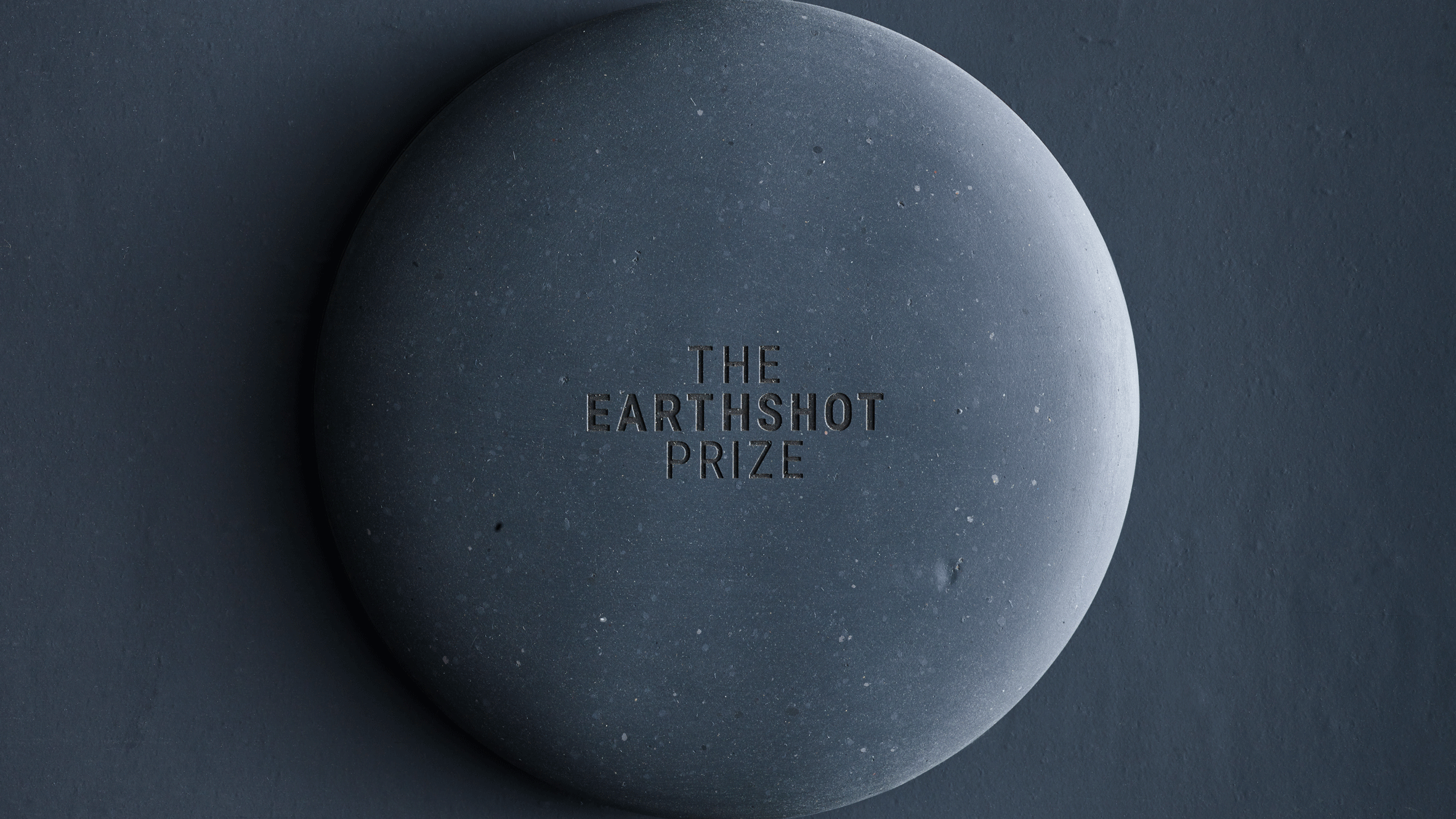
Five designs "to repair our planet" named as Earthshot Prize winners
A restorative ecosystem scheme in Costa Rica and a tool that creates fuel from waste have been named winners of Prince William's Earthshot Prize for sustainable design and will each receive a medal designed by Christien Meindertsma.
Five winners from a 15-strong shortlist have received an Earthshot Prize for their solutions to the world's greatest environmental problems.
Launched in October 2020 by The Royal Foundation and Prince William, The Earthshot Prize is an annual awards programme that is "designed to incentivise change and help to repair our planet". It will run up until 2030.
Each winning project considers how our lives could be improved by 2030, in response to five categories. These are Protect and Restore Nature, Clean our Air, Revive our Oceans, Build a Waste-free World and Fix our Climate.
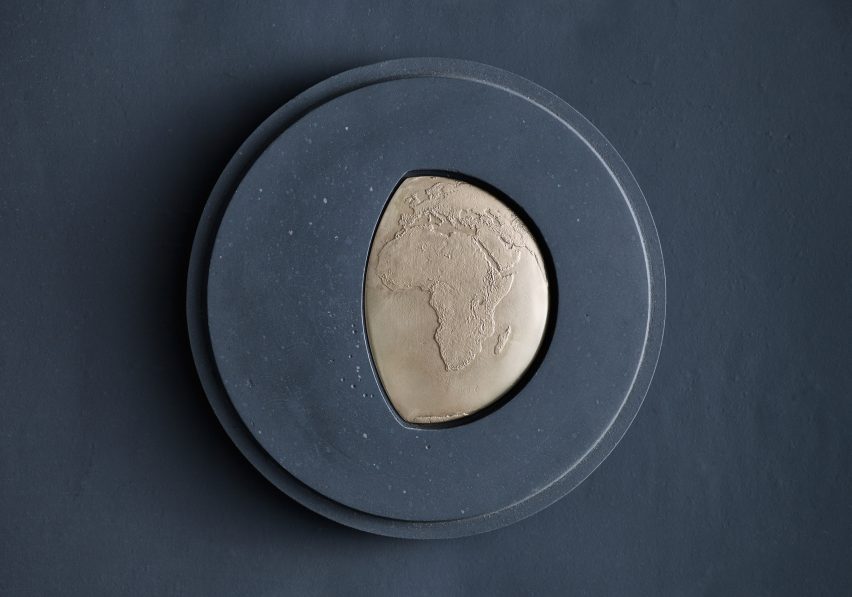
Awards were given to governments, schemes, designers and cities. The first winners of the prize are the government of the Republic of Costa Rica, biotechnology company Takachar, coral farming business Coral Vita, the Italian city of Milan and an AEM Electrolyser company called Enapter.
The Republic of Costa Rica government won the Protect and Restore Nature category for its scheme that pays local citizens to restore natural ecosystems in urban areas.
The scheme builds on a similar programme between the Costa Rican Ministry for Environment and locals which protects forests and ecosystems in rural areas.
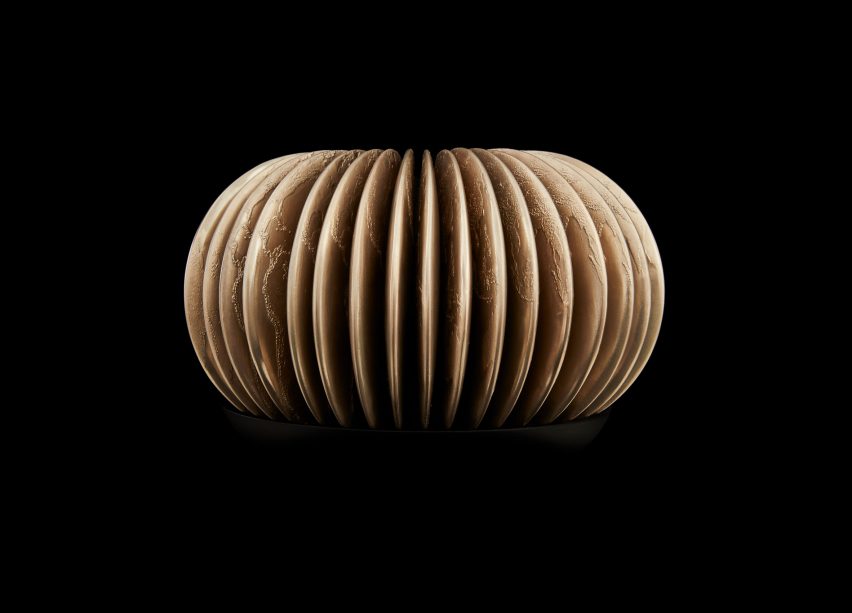
The Clean our Air category was won by Takachar, for its tool that creates fuel from agricultural waste.
In a bid to prevent crop burning and air pollution, Takachar created a cheap, portable tool that can be attached to tractors in remote farms. The machine then converts crop residues into bio-products such as fuel or fertilizer.
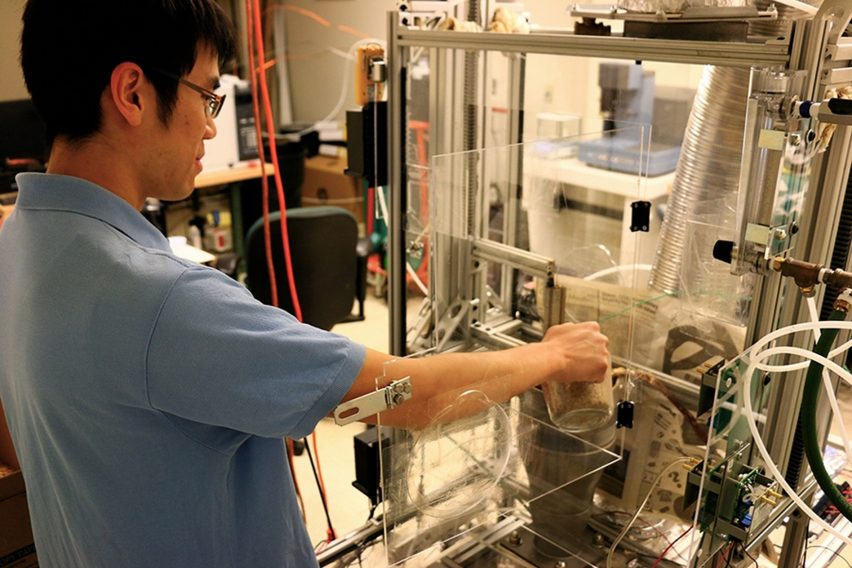
The Revive our Oceans category called for solutions that keep oceans healthy. Coral Vita, a company that grows coral on land before replanting it in oceans was awarded first prize. Using this method, corals can grow up to 50 times faster than traditional coral farming methods.
As well as restoring reefs, Coral Vita works with local communities and companies to improve education and source funding into environmental protection to bolster coastal economies.
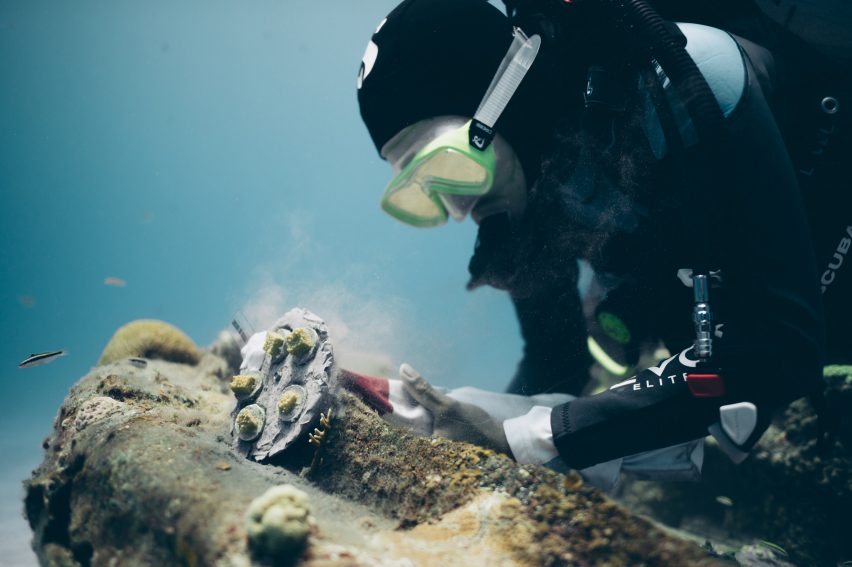
The fourth award was for an AEM Electrolyser by Enapter. The green hydrogen generator uses hydrogen in place of fossil fuels, transforming how homes and buildings could be powered.
As winner of the Fix our Climate category, the design meets the brief to combat climate change by removing carbon from the atmosphere and helping countries to reach net-zero greenhouse gas emissions.
Each winner received a unique earth-shaped award designed by Meindertsma at an awards ceremony that took place in London last Monday.
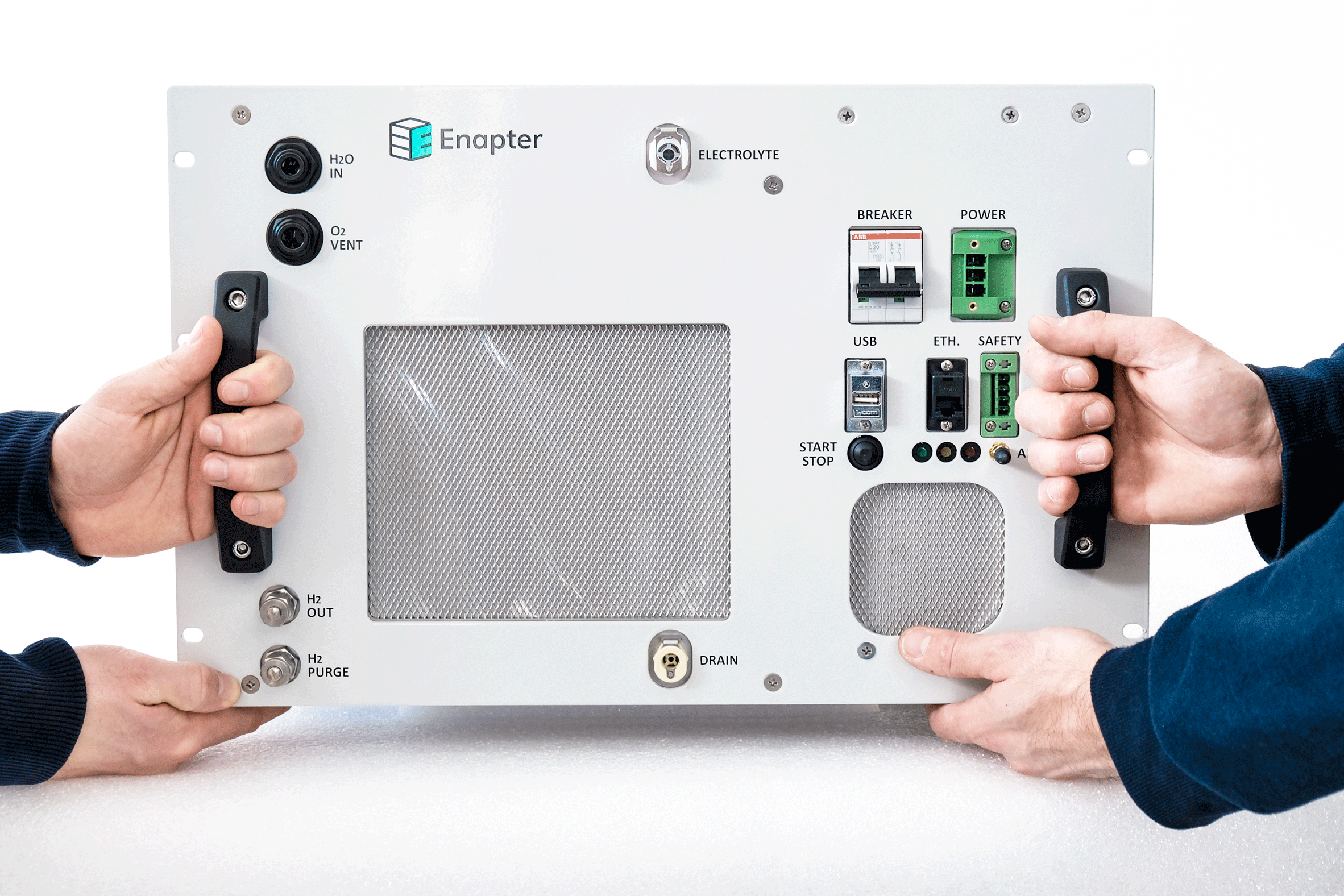
The final winner was The City of Milan for the Build a Waste-free World award. Its Food Waste Hubs, a city-wide initiative that cuts waste and tackles hunger involves recovering waste food from supermarkets and redistributing it to non-governmental organisations (NGOs) that deliver it to those in need.
This category awards efforts that reduce waste, cut single-use packaging and inspire a new generation to reuse, repurpose, and recycle.
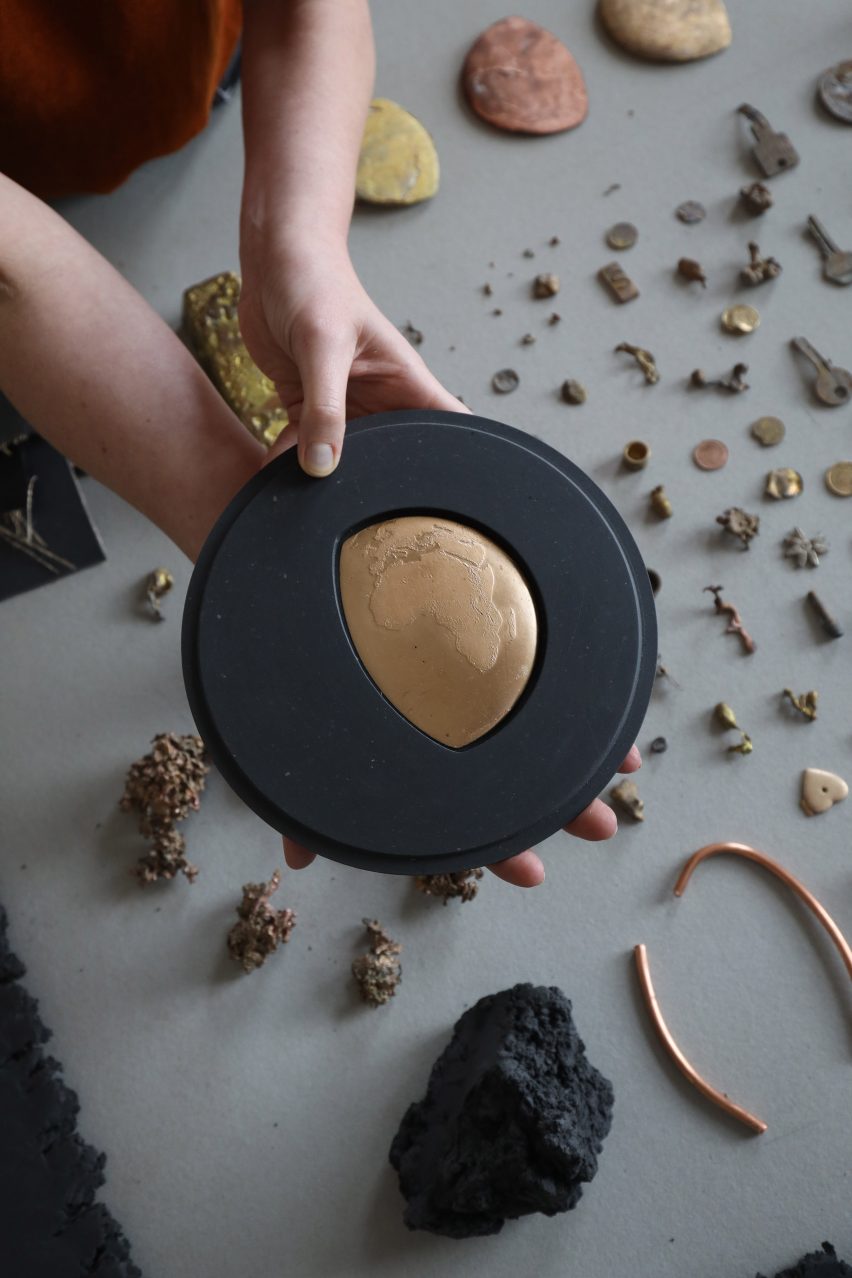
Called Precious Matter, the award is made from recycled materials, in line with The Earthshot Prize's goal to reach a zero-waste world.
The Dutch designer drew on Earthrise, a renowned photograph of Earth by astronaut Major General William Anders for the design. Each award depicts a slightly different rotation of the Earth's surface.
Together, the 50 awards – five awarded each year for ten years – will combine to create a whole planet Earth, mirroring how the 50 future solutions of the Earthshot Prize will "repair the planet".
Dutch designer Meindertsma said the medals were a celebration of "the preciousness of matter on earth and the fact that we all share this matter."
"The design of the award is based on that very special first moment when the three astronauts of the Apollo 8 mission first saw the earth as a tiny beautiful precious marble of matter," she said.
The recycled brass, which forms the core of the medal was sourced from water pipe fittings, household waste such as keys and small metal elements filtered from wastewater sludge.
The Earthshot Prize medal is housed in a recycled linoleum box which Meindertsma made from material found in factory waste.
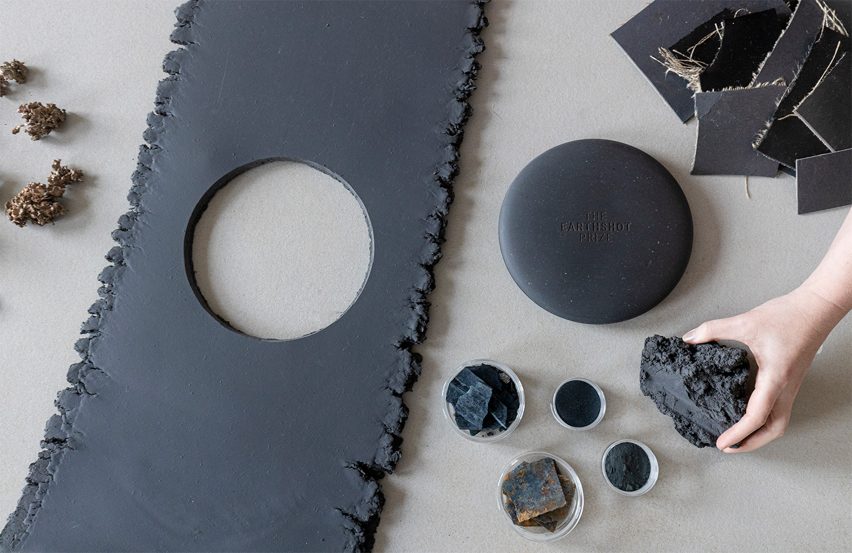
The winners received £1 million prize money each and access to a global network of professional and technical support to scale these cutting-edge environmental solutions.
The prize is accompanied by a five-part documentary called The Earthshot Prize: Repairing our Planet, which explores the challenges facing our planet and the ground-breaking solutions being developed to repair it.
The next Earthshot Prize award ceremony will take place in the US. Nominations for the 2022 Prize will open in January 2022.
This year, a series of high-profile sustainable summits to tackle climate change will take place. In November, the COP26 Climate Change Conference by the United Nations will take place in Glasgow.
A RIBA Built Environment Summit which will explore ways to decarbonise architecture will take place online and at RIBA London from 28 to 29 October 2021.